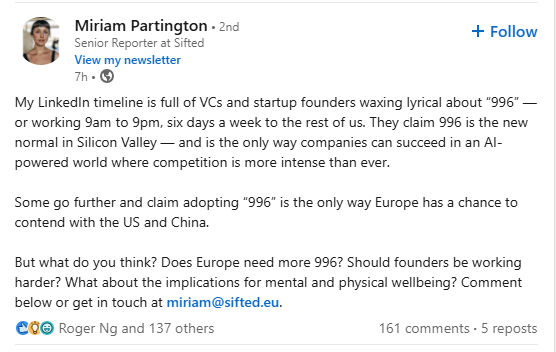Newsletter #16: Southeast Asia's merger mess? Huda Kattan regains control of Huda Beauty
It's been an active week 😆
Merger mess in Southeast Asia? 😱
M&A integrations are messy affairs, least of all in Southeast Asia involving large tech decacorns/unicorns. When you’re that large, a merger is no longer just a financial transaction between investors, board and management.
You’ve got vested interests from anti-monopoly regulators, SMEs, blue collar workers, unions. If you’re listed, you have the public exchanges and retail investors to think about, and then of course, the government themselves. This makes deal structuring complex, politically sensitive and difficult.
Since the beginning of 2025, I’ve gotten sporadic texts from Singaporeans speculating that maybe it’s a good time to buy Grab’s stock (!!?) presumably fueled by rumour mills from employees and/or an acceleration of media articles surrounding the “seriousness” of these never-ending Grab-GoTo merger talks.
The latest? A new sovereign wealth fund thrown in as broker.
Danantara’s participation would boost the chances of the companies obtaining clearance from Indonesia’s government, likely the biggest regulatory hurdle for a deal.
One scenario being discussed is for GoTo to first buy Grab’s Indonesian ride-hailing and food delivery business. Following that, Singapore-based Grab would buy a majority stake in this combination, allowing it to run GoTo’s operations in Indonesia, the people said. In this scenario, GoTo would sell its ride-hailing business in Singapore to another buyer, the people said. (Source: Bloomberg)
But if the state of another well-known e-commerce merger — ByteDance’s TikTok Shop and Tokopedia — is anything to go by, it looks like a prelude to yet another round of messy backend integrations, cultural misalignments and layoffs.
The migration from Tokopedia to TikTok Shop goes way beyond a simple shift of dashboard and UX for many e-commerce sellers, write DealStreetAsia and TechinAsia. It also includes the choice and quality of logistics providers, ads, account management, fees and payment, all of which affect purchase decisions, delivery and sales for Indonesia’s mom-and-pop sellers.
Indonesia’s regulators are in fact still reviewing TikTok Shop-Tokopedia’s marriage 1.5 years post its engagement announcement…🥲💍
To make matters worse, the Indonesian antitrust agency KPPU on Wednesday announced the preliminary findings of its merger review, concluding that the deal “has the potential to create monopolistic practices and/or unhealthy competition.”
“…the KPPU proposed a set of conditional approvals which require TikTok and Tokopedia to maintain open access to third-party logistics and payment services; avoid bundling that coerces sellers into exclusive services; submit quarterly reports over two years detailing key contracts, pricing strategies, and seller data; and guarantee algorithmic fairness, including visibility for external merchants.” (Source: DealStreetAsia)
Not exactly a story of happily ever after, but maybe for the sake of their families…
Huda Kattan regains full ownership of Huda Beauty💄
This deal was tied in with Huda Beauty’s recent divestment of its perfume brand, Kayali in February 2025. The transaction introduced General Atlantic as a minority shareholder to Kayali, provided an exit for TSG Consumer Partners, while returning full ownership of Huda Beauty back to its Iraqi American founder, Huda Kattan.
This also makes Huda Beauty one of the few beauty brands globally to be completely founder-owned. No financial details were disclosed. TSG Consumer last valued Huda Beauty at $1.2 billion back in 2017.
This deal is also taking place against the backdrop of a number of sizeable M&As happening the global beauty/skincare space. Just last week, Hailey Beiber’s skincare brand Rhode was acquired by e.l.f. Beauty for about $1 billion.
The deal includes $600 million in cash, $200 million worth of e.l.f. Beauty stock and a potential $200 million in future payouts based on the company’s growth over the next three years…Rhode did $212 million in net sales in the year through March 2025, per e.l.f.’s announcement. (Source: Reuters)
Huda Kattan has a pretty impressive story. The beauty-obsessed Tennessee blogger of Iraqi descent started the brand with a $6,000 loan from her sister to make her first collection of false eyelashes in 2013. Against everyone’s advice, she chose to stock her Giselle lashes in Sephora Dubai instead of the US. It went viral and the rest is history.
Kattan has been through quite the journey since — introduced TSG Consumer as a minority investor in 2017, stepped down as CEO in 2020, before reclaiming her position as CEO again in 2023/24, and now — regains full creative control and ownership of the brand.
She shares her experiences very candidly in the video (see above).
Interesting reads 🤓
Social Capital’s 2024 Annual Letter (Chamath Palihapitiya)
Big Four firms race to develop audits for AI products (Financial Times)
Singapore’s Temasek cuts back on start-up investments (Financial Times)
Asian companies in talks to list in Saudi Arabia, exchange CEO says (Reuters)
More firms may exit SGX even as it moves to attract listings (Straits Times)
S’pore’s billion-dollar biotech firm: Life sciences scholar leads start-up to list in HK (Straits Times)
AI livestreaming a hard sell in Indonesia – for now (TechinAsia)
Gprnt Raises US$4.62M, Launches Automated ESG Reporting Tool for SMEs (Fintechnews SG)
US-UAE multi-billion dollar AI data campus deal far from finalised, sources say (Reuters)
TSMC Evaluates Building Advanced Chip Plant in the UAE (Bloomberg)
UAE investment in data centres may be overly optimistic (AGBI)
Gulf investors help finance growth of Turkish data centres (AGBI)
UAE to be removed from EU money laundering black list (Euractiv)






